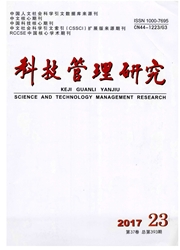

 中文摘要:
中文摘要:
构建基于经济发展、社会进步、环境优化、能源转型的城市低碳水平评价指标体系,采用熵权-TOPSIS评价法和障碍度模型测度我国低碳城市试点天津市的低碳发展水平,识别不同时期阻碍其实现低碳目标的制约因素。研究结果表明:研究期间,天津市低碳发展水平呈整体上升趋势,绩效指数从2008年的0.2298增加到2015年的0.7265;社会进步和能源转型障碍度总体呈增长趋势,年均增长速度为18.45%和4.97%;经济发展和环境优化障碍度总体呈减少趋势,年均下降速度为9.37%和7.57%。在此基础上,从能源效率提高、产业结构优化、环境治理提升和基础设施加强等方面提出相关对策建议。
 英文摘要:
英文摘要:
Analysis evaluation on performance and obstacle degree of low carbon city is an important basis for the realization of urban green low-carbon development. In order to construct the evaluation index system of low carbon city level, this paper analyzes the low carbon city performance of Tianjin and the related factors which hinder the realization of the goal of low carbon based on the Entropy -weight TOPSIS method and obstacle degree analysis model. The results showed that the development level of low carbon city in Tianjin was generally increased, with the performance index increased from 0.2298 to 0.7265 during the period from 2008 to 2015. At the same time, the obstacle degree of social progress and energy transformation sustainability was increased by the annual average of 18.45% and 4.97%, but the obstacle degree of economic development and environmental optimization sustainability was decreased by the annual average of 9.37% and 7.57%. On this basis, the paper puts forward some countermeasures and suggestions from the aspects of energy efficiency, industrial structure optimization, environmental governance and infrastructure.
 同期刊论文项目
同期刊论文项目
 同项目期刊论文
同项目期刊论文
 期刊信息
期刊信息
